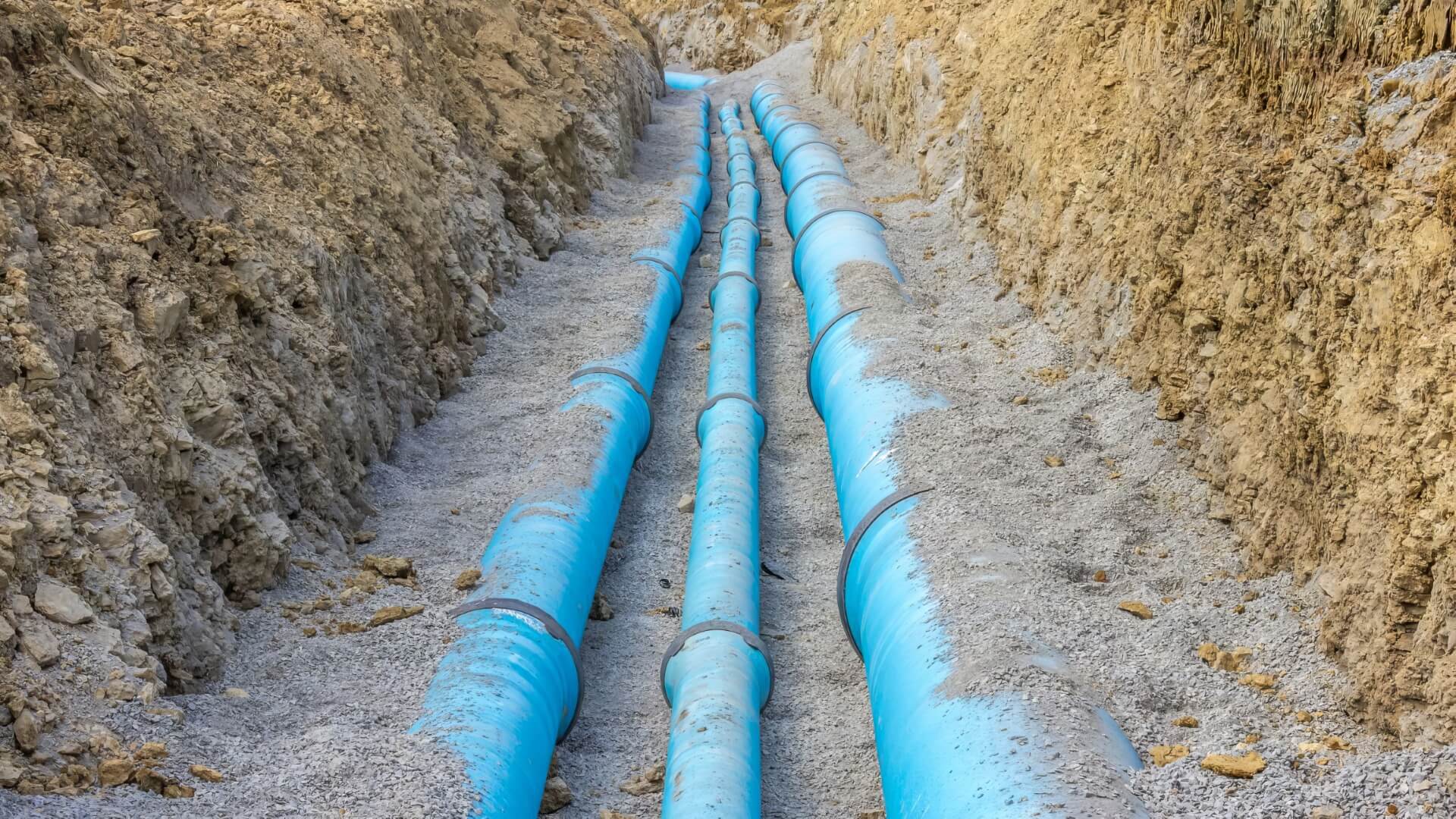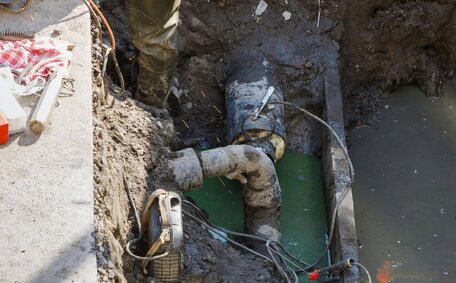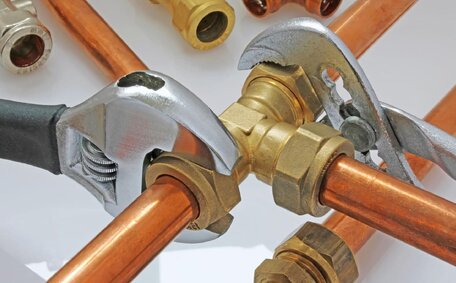Locate and Label Your Home’s Main Water Shutoff Valve
Identifying and marking your home’s plumbing main water shutoff valve is crucial for addressing issues before they escalate, a key step in maintenance. The main shutoff valve is often found where the water line enters your house and is essential for swiftly stopping the water supply in an emergency.
Check areas such as the entrance of your basement or garage to ensure the water shutoff valve is readily accessible. It may have a handle that turns 90 degrees to shut off water flow.
Check your water incoming pipes within your premises to pinpoint where the valve is located, if necessary. Once located, make sure to turn the water back on.
Label your pipes clearly with a noticeable tag indicating "Main Water Shutoff Valve" to avoid confusion during a plumbing emergency. This makes it easy for you or a plumber to find and address your own plumbing in a flooding crisis. Consider also labelling these items like your electric, gas, and other utility shutoffs to ensure your safety and preparedness.
If a leak can occur from a burst pipe, shut off water immediately at the main valve before calling a West Pennant Hills plumber. This precaution can prevent costly flooding and protect your home from damage. Employing these tips to keep your home’s your main valve fully operational is a wise step in preventative maintenance.
Conduct Regular Visual Inspections to Check for Leaks
Adhering to maintenance tips is vital for keeping your plumbing system in check and preventing leaks early on. Inspect pipes, joints, and valves for leaks or water damage signs, which can help avert health risks like rust or mould growth. These symptoms can suggest slow leaks that could eventually lead to costly problems before your pipes top an urgent repair list and compromise your property.
Examine your sinks toilets for any signs of continuous running, check your faucets for leaks, and survey appliances like dishwashers for unanticipated moisture. When it comes to promptly addressing small problems, like leaks, can save you from water wastage, damage, and high utility bills.
Regularly checking for ground wetness can help homeowners detect potential underground leaks. It’s ideal to inspect your homes plumbing systems at least once every year. Should issues arise, call professional help as soon possible to prevent costly repairs inside your home down the line.
Recording any plumbing issues helps maintain the health your system, safeguarding your home’s infrastructure over time. Even minor leaks can quickly escalate into serious problems without prompt attention. Stay vigilant with regular checks and maintenance.
Clean Faucet Aerators and Showerheads
Maintaining your garbage disposal and regularly cleaning faucet aerators are simple DIY tasks that help sustain your home plumbing. Some essential plumbing tips for maintaining your own fixtures include cleaning aerators, which are small screens on faucets regulating water flow and splash. Over time, mineral deposits and sediment can accumulate, and pipes can become restricted, reducing water flow.
Its crucial to meticulously clean an aerator by unscrewing it from the faucet and clearing any debris, while ensuring all parts are kept intact. Take care your aerator by giving it a white vinegar bath overnight, which dissolves troublesome mineral deposits. Rinse and dry before reattaching.
Your shower head can accumulate mineral deposits that can clog your drains, reducing water pressure. Use a small brush or toothpick to gently clear clogged holes.
Unscrew the showerhead and soak it in white vinegar. Perform a thorough rinse and ensure it is dry before reattaching the piece.
Clean aerators and showerheads every 2-3 months as part of regular maintenance to maintain optimal water flow and pressure. Pay attention to any subsequent changes in flow—a newly clogged aerator can indicate pipe issues needing a West Pennant Hills plumber’s expertise.
Adopting basic plumbing routines for simple cleaning can optimise your system’s performance in the long run. However, while some persistent pressure issues that DIY plumbing cannot resolve, it’s advisable to call expert assistance.
Unclog Drains
Clogged drains, a common plumbing issue, can often be unclogged by yourself, helping avoid the cost of calling a plumber. Begin with household remedies for clear drain blockages, as these are safer alternatives to commercial cleaners.
Introduce a mixture of vinegar and baking soda down your drain - the effervescent reaction between the two aids in breaking down stubborn drain obstructions. Cover the drain for 5 minutes as it fizzes before flushing with hot water for a few minutes.
The most effective and safer option, enzyme-based drain cleaners keep your pipes top unscathed compared to harsh chemical cleaners. Try an enzymatic cleaner first and let it sit before flushing the drain.
Use a plunger, which you can easily find at any hardware store, over the drain to create suction, ensuring that the water can successfully dislodge clogs. Add petroleum jelly around the plunger rim for a seal that’s tight just right. Plunge the drain 10-15 slow, steady pumps at a time.
For those tougher sink or tub clogs, particularly from an accumulation of grease oil, consider handling it solo using a wire snake/auger. Feed the auger down the drain and twist gently to snag hair and debris jammed in the pipe, pulling it out.
Be mindful of what flush down your toilet and resist using abrasive chemical drain cleaners that can harm pipes. For persistent or severe clogs, it’s prudent to seek professional drain cleaning services, which can inspect and clean your sewer system effectively, while checking for pipe damage or intrusive tree roots.
Maintain Water Pressure
Ensuring your home’s system responsible for plumbing maintains a consistent water pressure between 45-65 PSI is key to its optimal functioning. Keeping up with regular plumbing checks like monitoring your water pressure ensures everything functions correctly.
If pressure is too low, scrutinise irrigation systems or your old appliances like washing machines for usage that diminishes pressure. Consider replacing old galvanised pipes prone to internal corrosion and flow restriction.
For consistent low pressure, check water levels and consider installing a booster pump system after the main shutoff valve to increase flow. Ensure it has a pressure tank to maintain pressure between cycles.
High water pressure your system experiences over 80 PSI strains pipes and can damage your plumbing, leading to leaks over time. Install a pressure reducing valve after the main shutoff to lower pressure, safeguarding your pipes from wear tear to prevent damage to your home.
Annual water pressure checks and maintenance are crucial to keep your plumbing system running smoothly. But for complex pressure issues, a West Pennant Hills plumber can fully evaluate your system.
Insulate Pipes
Insulating your plumbing pipes helps regulate water temperature, avoid freezing, prevent condensation, and increase energy efficiency. For hot water systems, insulating pipes slows heat loss as water travels from your water heater. For cold pipes, it prevents exterior condensation and restricts heat transfer to keep water cooler.
Opt for pipe insulation such as polymer foam tubes or fibreglass wraps that are rated for plumbing use. Cut sections to tightly fit each pipe’s diameter without compressing insulation. Seal seams thoroughly with insulation tape to create a continuous barrier.
Insulate exposed hot and cold water supply pipes near water heaters first, along with the initial metre of pipe from the heater. Continue insulating accessible supply pipes under sinks or in unfinished basements.
Protect the pipes around your home, including those exposed outdoors or in unheated areas like garages, from freezing in winter by wrapping with electrical heat tape under the insulation. Consider using heat cable near outdoor faucets for additional freeze protection.
regular maintenance like insulating your pipes boosts efficiency and increases longevity. For tricky locations, West Pennant Hills plumbers can expertly insulate hard-to-reach plumbing runs.
Flush the Water Heater
Annual flushing of your water supply’s heater prevents sediment buildup that impairs both efficiency and longevity. Sediment often gathers at the tank’s base, which can cause inefficiencies due to the minerals present in hard water. Flushing the water heater cleans this out.
Attach a garden hose to the tank’s drain valve and route it to a safe drainage area. Fully open the drain valve to let the water flow and remove any lingering sediment.
You might have to carry out flushing multiple times. To initiate, you can take the steps to turn off both power and water supply to the heater.
Conclude the process by sealing the drain valve and replenishing the tank. Re-energise and reinstate the water, all the while inspecting for leaks to ensure everything is in good working order. Carry out your system’s annual flushing along with testing the pressure relief valve to ensure good operation.
Sediment buildup can affect your plumbing’s efficiency by causing water heaters to overexert, which leads to higher energy bills. Catching it early also prevents tank corrosion and possible leaks. Annual water heater maintenance extends the West Pennant Hills system’s lifespan.
Upgrade Old Pipes
Over time, plumbing pipes endure wear and tear, culminating in leaks, corrosion, flow restriction and contamination threats. Upgrading old, outdated pipes with modern water-efficient piping brings big benefits.
Look to upgrade aged galvanised steel pipes, lead piping, or deteriorating PVC with durable and non-reactive cross-linked polyethylene (PEX) for water treatment lines. PEX resists scale buildup, ensuring clean water transport, doesn’t corrode, and withstands freezing better than metal pipes.
Replace waste lines made from older materials with smooth-walled PVC pipes less prone to clogs and tree root infiltration. Modern PVC withstands chemicals and heat well for long service life.
A home maintenance strategy to consider is whole-home re-piping, especially if your plumbing is severely compromised. A West Pennant Hills plumber can advise on the best replacement pipes to enhance water quality, flow rate and safety.
Upgrading old pipes boosts system integrity, and installing watersaving fixtures cuts usage for greater efficiency. Investing in plumbing improvements saves money over time while adding value and peace of mind.
Install Water Saving Fixtures
Installing water-efficient fixtures is an impactful way to reduce water usage and utility bills. Low-flow faucets and showerheads provide good water pressure while using a fraction of the water that conventional fixtures consume.
Select faucets, showerheads, and toilets with the EPA WaterSense label for enhanced water efficiency. WaterSense fixtures must meet strict technical specifications for water efficiency and performance.
Replacing old, inefficient toilets with new low-flow or dual-flush toilets can lead to major water savings. Low-flow models use 1.6 gallons per flush (gpf) versus outdated 3.5+ gpf toilets. Even more efficient, dual-flush toilets have a full and reduced volume flush option tailored to waste removal needs.
Installing aerators on faucets also conserves water. Aerators infuse air into the water stream to maintain wetting effectiveness while cutting flow volume. Consider touch-activated or metered faucets to further control usage.
Upgrading to water-efficient plumbing fixtures reduces strain on supply infrastructure while curbing usage. A West Pennant Hills plumber can help select and properly install water-saving fixtures suited to your household needs.
When to Call a Professional Plumber
While regular DIY maintenance keeps your plumbing system running smoothly, some issues require calling in a professional West Pennant Hills plumber for expert assistance.
Seeking help for complex repairs or installations beyond your skill level prevents further damage or safety hazards. Our licenced, bonded and insured plumbers have the tools and know-how to address problems thoroughly.
Contact us immediately if you encounter:
- A major leak, burst pipe or overflowing toilet causing water damage
- Broken, cracked or seriously clogged drain lines
- Little to no hot water due to a faulty heater or plumbing connections
- Significantly low water flow and pressure persisting after DIY troubleshooting
- Backed-up sewer lines allowing waste to flow back into sinks or tubs
For every plumbing job, including resolving a pressing plumbing issue, Our plumbing company guarantees that the job will be tailored to meet the specific needs of your space.
Don’t hesitate to pick up the phone when confronted with complex plumbing issues. Our West Pennant Hills team prioritises clear communication and transparency about project scope and pricing from the outset. Call us at 1300 349 338 or email [email protected].
Investing in professional assistance for major repairs or planned improvements ensures your plumbing remains code-compliant and built to last for years of reliable service.






